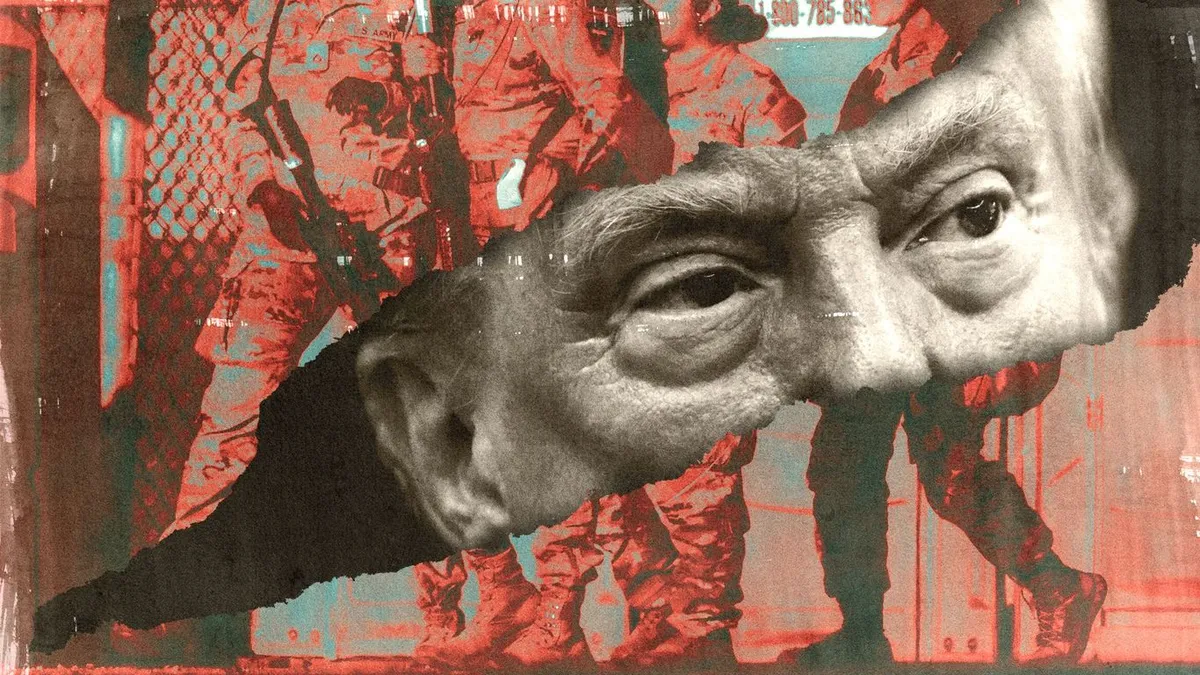
Chicago has emerged as the epicenter of President Trump's domestic military experiment, setting the stage for a dramatic confrontation between armed federal forces and a Democratic-led city that is committed to resisting them. This situation is significant as it could potentially usher in a volatile new chapter in American history, highlighting the increasing tensions between federal authority and local governance.
The recent arrival of the National Guard—specifically, 200 troops from Texas—has raised alarms, especially in light of Trump's calls to arrest Chicago Mayor Brandon Johnson and Illinois Governor JB Pritzker. The administration claims that the deployment is intended to protect federal agents engaged in immigration operations. However, the state of Illinois has filed a lawsuit, arguing that this military presence constitutes an illegal occupation.
Notably, the National Guard troops are not authorized to engage in policing activities, in order to adhere to the Posse Comitatus Act of 1878, which restricts military involvement in civilian law enforcement. This legal framework is critical as the situation unfolds in Chicago.
Weeks of ongoing raids, protests, and violent clashes related to Immigration and Customs Enforcement's (ICE) Operation Midway Blitz have left the city on edge. Homeland Security officials assert that their focus is on targeting criminal unauthorized migrants, but local leaders contend that the aggressive tactics employed by federal agents, including the use of a Black Hawk helicopter, have further inflamed tensions.
A coalition of journalists and protesters has filed a lawsuit alleging systemic brutality outside a local ICE facility, particularly highlighting a disturbing incident where a pastor was shot in the head with a pepper ball, which went viral on social media. The introduction of National Guard troops has transformed this conflict from a mere immigration enforcement issue into a broader test of presidential power versus state sovereignty.
Chicago's unique blend of politics, demographics, and history has set the stage for a potential showdown. Mayor Brandon Johnson, a Black progressive, has taken a strong stance against Trump's perceived authoritarianism, even going so far as to sign an executive order that creates ICE-free zones, which prohibit immigration agents from using city property. Governor Pritzker, who is also viewed as a potential 2028 presidential candidate, has made opposing Trump and supporting liberal causes a cornerstone of his political identity.
Moreover, Chicago is the hometown of former President Obama, adding another layer to the political dynamics at play, as Trump positions himself against a backdrop of leadership that challenges his agenda.
For years, Republicans and conservative media have pointed to Chicago as a representation of urban violence and Democratic mismanagement. FBI Director Kash Patel's claim that Chicago houses 110,000 gang members—approximately 5% of the city's population—highlights the ongoing narrative that the city is struggling with crime.
The decision to send Texas National Guard troops into Illinois without Governor Pritzker's approval exists in a legal gray zone, raising questions about the extent of presidential powers regarding domestic military deployment. A hearing is scheduled for Thursday regarding Illinois' lawsuit to block the National Guard's presence, which could set a precedent for future federal actions in Democratic-led cities.
If the courts allow the deployment, it could pave the way for a significant expansion of federal authority, enabling the National Guard to be sent into states without the consent of governors. This would mark a historic shift in the balance of power between federal and state governments. Conversely, should the courts block the deployment, President Trump might use this setback to invoke the Insurrection Act, granting him sweeping powers to conduct law enforcement operations on U.S. soil, which could override the Posse Comitatus Act.
White House Deputy Chief of Staff Stephen Miller has already suggested this approach, stating that the President has the authority to federalize the National Guard when public safety is at stake. This development could escalate tensions further, particularly in light of the ongoing conflicts involving local leaders like Johnson and Pritzker.
In response to the ongoing unrest and violence, White House spokesperson Abigail Jackson emphasized that President Trump is exercising his lawful authority to protect federal officers and property. She criticized local leaders for their perceived inaction in addressing the lawlessness that has taken hold in their cities.
The situation in Chicago represents a critical moment in American governance, as Trump's war from within unfolds. As he recently conveyed to over 800 military commanders, this conflict is far from over, and its implications will resonate across the nation.